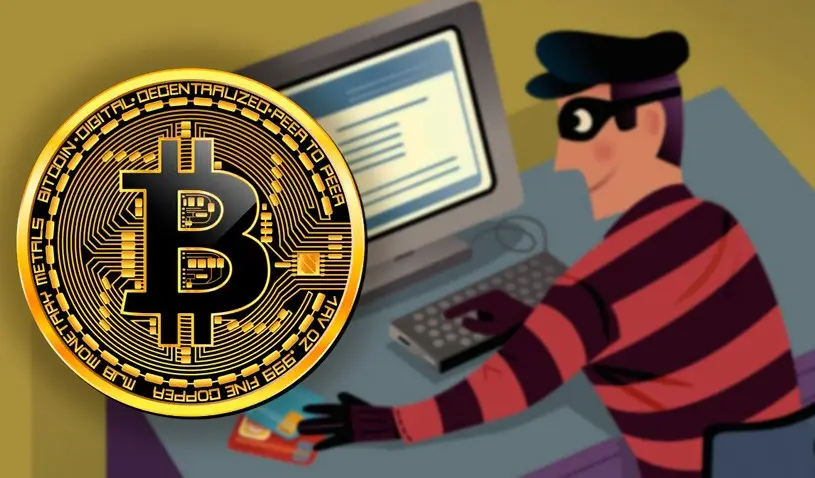The widespread proliferation of fraudulent cryptocurrency schemes is directly related to the high popularization of digital assets. The greater the demand for this offering among consumers, the more fraudsters in this field become active.
To preemptively protect yourself, we recommend thoroughly studying all possible cryptocurrency frauds to avoid becoming a victim of scammers.
Main Types of Cryptocurrency Fraud
To achieve their goals, scammers use numerous tricks, from aggressive marketing to creating various projects. The most common schemes are:
- Investment platforms where crooks offer to earn money by investing in cryptocurrency assets.
- Fake cryptocurrency wallets in the form of applications, claimed to be reliable storage for virtual assets.
- Phishing sites. Pages that outwardly resemble reliable crypto exchanges and wallets, created to deceive clients and obtain personal user data.
- Scammer social pages – advertising supposedly successful exchanges and platforms.
- Cryptocurrency pyramids – schemes promising enormous profit but requiring clients to attract new users.
- Game applications for earning cryptocurrency.
- Hacks of crypto wallets and exchanges.

The most common scams are Bitcoin scams, as this cryptocurrency is currently the most expensive and well-known. Scammers use many tricks and promises to get the victim's money, creating entire websites, which can easily be checked for legality and regulation.
How Cryptocurrency Theft Occurs
Cryptocurrency theft – is the malicious use of illegal actions aimed at gaining access to other people's digital assets to take possession of them. To achieve their goals, scammers resort to both technical and psychological manipulations.
The most common way to take possession of someone else's assets is the use of malicious software. Various hacks and hacker attacks on exchanges and crypto wallets are very common nowadays, so we advise storing your assets in reliable storage.

Phishing is also very popular among fraudsters. This method of fraud involves sending emails or creating special pages to obtain data from potential victims. The user, unwittingly, clicks on a phishing link, and a special program reads all the necessary information for the attackers.
To gain access to digital data, crooks attack from various sides. Scam attacks, SIM Swapping, and other methods are widely used by fraudsters to hack storage and take possession of crypto assets.
How Cryptocurrency Fraud Occurs
In addition to schemes aimed at stealing virtual currencies, there are many schemes allegedly aimed at generating income in this financial sector.
There are currently a huge number of investment offers on the web that claim high returns from investing in new assets.

Such companies most often invent their own coin, which is supposedly at the final stage of listing and will soon outperform even Bitcoin. It is not always easy to recognize such crooks, but it is nevertheless necessary to pay attention to aspects such as:
- The quality of the official website. Cheap, template-based, and single-page resources cannot indicate the success of a project.
- Availability of legal documents and licenses. Often, such crooks do not even rush to disclose the country of registration of the company, let alone provide licenses.
- Lack of data about the currency itself and information about what the asset is backed by.
Scammers create a beautiful picture and promise investment success in every way, but in the end, the investor loses all their investments.
Also, to take possession of users' money, fraudsters create airdrops and game applications – schemes promising free cryptocurrency distribution and earnings. Such deepfakes actually yield no earnings and are a type of crypto fraud – a process of fraudulently obtaining client data.
How to Protect Yourself from Cryptocurrency Fraud
Protection from cryptocurrency scams is currently very relevant, as fraudsters constantly invent new schemes to take possession of investors' funds.

To protect yourself from fraudulent schemes, heed the following advice:
- Verify information. Study the project, its team, and reputation, be sure to research the project's rating. Use independent sources to gather data; this will allow for a more objective assessment.
- Keep personal keys secure. Do not share them with anyone, under any circumstances, and do not store them on computers. Use offline storage (cold wallets).
- Avoid offers that seem too good to be true. As often, it is behind sweet stories that the most notorious fraudsters hide. Check the addresses of websites and applications.
- Use multi-level protection. A more reliable method of protection is at least two-factor authentication (2FA). Create strong passwords that are not linked to your birthdate, etc.
- Check reviews and reputation. Research the opinions of other users before investing.
The cryptocurrency market offers many opportunities, but it is also full of risks. Be vigilant and cautious!



